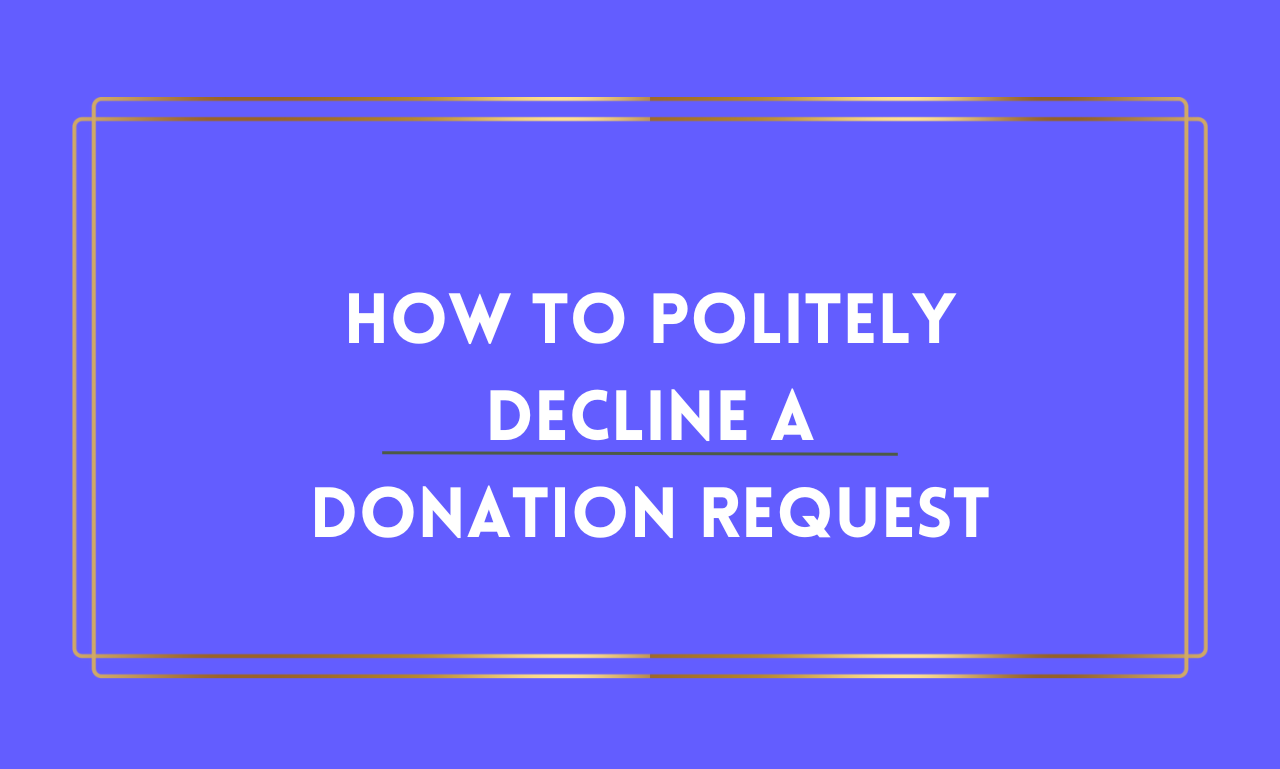Donation requests are a common occurrence, whether you’re an individual donor or a representative of an organization. While many causes are worthy and deserving of support, it’s not always possible to contribute to every request. Knowing how to decline a donation request politely is an important skill that helps maintain positive relationships and uphold your values. In this guide, we’ll explore effective strategies for crafting a thoughtful response, offering alternative support, and setting clear boundaries—all while maintaining professionalism and empathy.
Understanding the Request
Before responding to a donation request, it’s essential to understand its context. Evaluate the credibility of the organization and the impact of their work. Conduct research to gather information about the cause, ensuring you make an informed decision. Consider factors such as your current financial situation, existing commitments, and alignment with your personal or organizational values. This assessment will guide your response and help you communicate your decision with confidence.
Crafting a Polite and Professional Response
When declining a donation request, the language you use can significantly influence how your response is perceived. Begin by acknowledging the importance of the cause and expressing appreciation for the request. Use empathetic language to convey your understanding and respect for the organization’s mission. Be transparent about your reasons for declining, whether it’s due to budget constraints, prior commitments, or a focus on other causes.
Here’s an example of a professional response:
“Thank you for reaching out and sharing information about your cause. I genuinely admire the work your organization is doing to [mention the cause or impact]. Unfortunately, I am unable to contribute at this time due to [mention reason briefly]. I appreciate the opportunity to stay informed about your future initiatives and hope to support you when circumstances allow.”
Offering Alternative Forms of Support
Even if you cannot provide a financial contribution, there are alternative ways to support the cause. Offer to volunteer your time or skills, attend fundraising events, or promote the cause through your network. Additionally, consider referring the organization to other potential donors or resources. These actions demonstrate your commitment to making a difference and reinforce your support for the cause.
Here’s how you might phrase this:
“While I am unable to make a donation at this time, I would be delighted to support your organization by [mention alternative support]. Please feel free to keep me updated on your upcoming events and initiatives.”
Setting Clear Boundaries
Maintaining boundaries is crucial when handling donation requests. Clearly articulate your decision to ensure there is no misunderstanding or expectation for future contributions. Setting boundaries allows you to remain respectful while protecting your personal or organizational commitments. Remember, declining a request does not diminish the importance of the cause or your respect for it.
Example of setting boundaries:
“I appreciate the opportunity to support your cause, but I must respectfully decline. My current commitments limit my ability to contribute to new projects at this time. Thank you for your understanding, and I wish your organization continued success.”
Sample Responses for Different Scenarios
- For a Personal Request:
- “Thank you for considering me for this cause. While I’m unable to contribute right now, I wish you success in your efforts to make a positive impact.”
- For an Organizational Request:
- “Your organization’s work is truly commendable. Due to our current focus on other initiatives, we are unable to offer financial support at this time. However, we remain supportive of your mission and look forward to future opportunities.”
- For a Recurring Request:
- “Thank you for reaching out again this year. At this moment, we are not in a position to make a donation, but we continue to support your mission and hope to contribute in the future.”
How should I respond to a donation request?
Responding to a donation request requires a balance of empathy and clarity. Start by acknowledging the importance of the cause and expressing appreciation for the request. Clearly state your decision to decline while offering a brief explanation if possible. It’s also helpful to suggest alternative forms of support, such as volunteering or spreading awareness. Always maintain a respectful and professional tone.
How do you tell someone you don’t want to donate?
Politely express your decision by acknowledging the cause and its significance. Clearly and respectfully state that you are unable to donate at this time, offering a brief reason if appropriate. You can also mention alternative ways you might be able to support the cause. Maintain a kind and professional tone throughout the conversation.
Conclusion
Declining a donation request can be challenging, but doing so with professionalism and empathy ensures your response is respectful and well-received. By offering alternative support and setting clear boundaries, you can maintain positive relationships while honoring your own commitments and values. Remember, it’s perfectly acceptable to say no, and future opportunities to contribute may arise as circumstances change.
